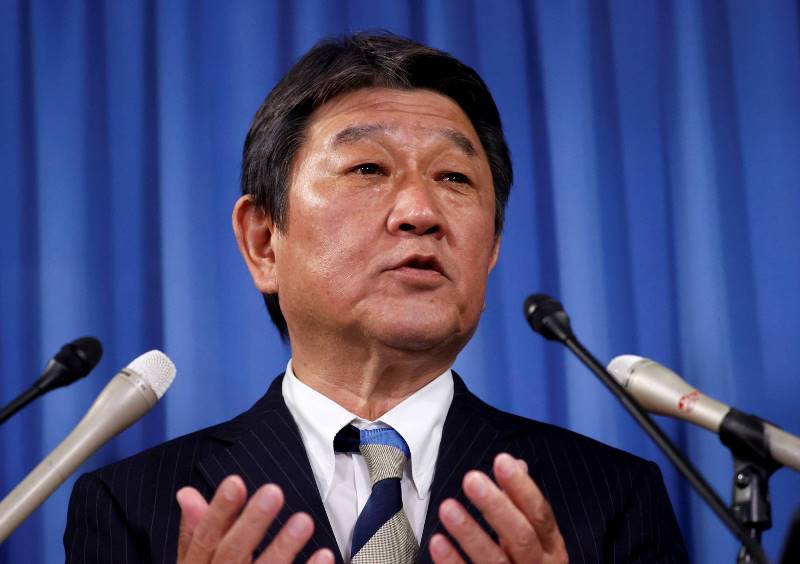Japan Prepares for Pivotal Trump Visit and Regional Diplomacy
Japan’s newly appointed Foreign Minister has announced that the nation intends to demonstrate its resolve to significantly enhance its defensive capabilities. This initiative is a direct response to the rapidly evolving nature of modern warfare and increasing regional tensions. The message will be prominently conveyed during U.S. President Donald Trump’s scheduled visit to Tokyo next week.
A New Leader Faces Immediate Diplomatic Tests
President Trump is set to meet with Japan’s Prime Minister, Sanae Takaichi, next Tuesday. Takaichi, who was elected as Japan’s first female premier just a day prior, faces substantial diplomatic challenges within her first few days in office. These include not only the high-profile U.S. presidential visit but also two critical regional summits, all while managing recent internal political disputes. Foreign Minister Toshimitsu Motegi confirmed, “We are firmly preparing for President Trump’s visit,” expressing hope that the meeting would allow the two leaders to strengthen the Japan-U.S. alliance and build a personal relationship of trust.
Strategic Military Expansion and Shifting Alliances
As part of its national security strategy, Japan is currently engaged in a five-year military buildup program that extends through 2027. This ambitious plan includes a goal to double its annual defense spending to 2% of its gross domestic product. A key component of this strategy is the development of a strike-back capability using long-range missiles, representing a significant shift from the country’s post-war, defense-only principle. The new Takaichi administration is even considering an accelerated review for its post-2027 strategy, which could involve even greater military expenditure. This direction is further underscored by the ruling party’s new alliance with the right-wing Japan Innovation Party, replacing a previous partnership with a more dovish coalition, raising questions about a potential move toward more offensive military roles.
Navigating Defense Priorities and U.S. Expectations
Minister Motegi emphasized that bolstering Japan’s military is essential to counter emerging threats, such as drone swarm technology seen in Ukraine and cyberattacks. He stated that the government plans to “firmly convey our plans to the U.S. side.” However, Japan is anticipated to face strong demands from President Trump, including calls to raise defense spending closer to NATO’s 5% of GDP benchmark, purchase more American-made weapons, and increase financial support for the approximately 50,000 U.S. troops stationed in Japan. In response, Motegi asserted Japan’s autonomy, stating, “Our national defense should be based on our own independent decision. What’s important is not the amount or the GDP ratio but what’s in it.” He also expressed a desire to meet promptly with U.S. Secretary of State Marco Rubio to discuss enhancing the deterrence and response capabilities of the bilateral alliance.














